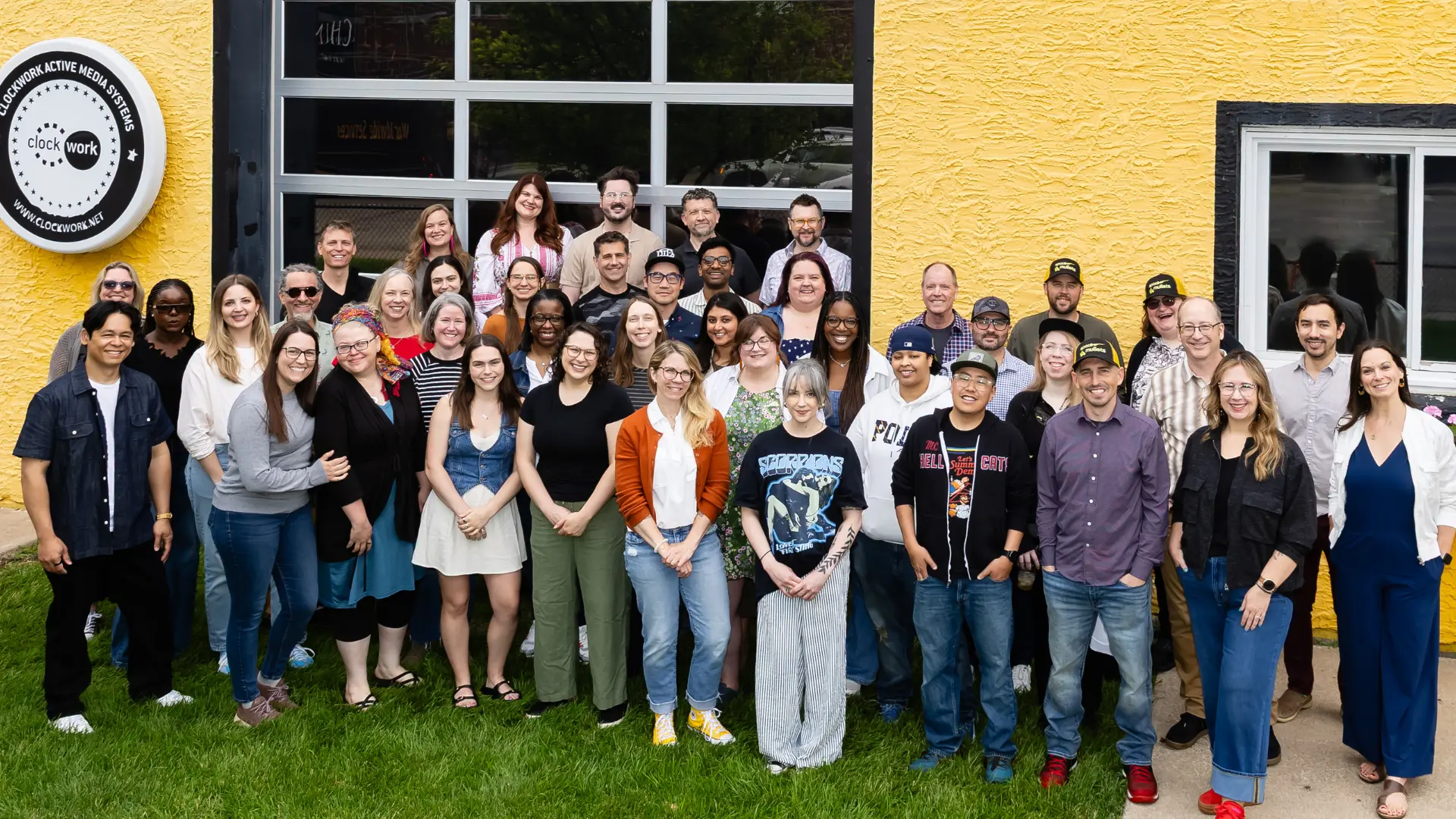Every power can be used for good and for evil. Artificial intelligence (AI) is no different. In the coming years, we will see brilliant, insightful, and life-changing advances thanks to AI. And, we’ll see destructive applications of it at the same time. We will see dramatic innovations and whole new business models based entirely on AI developments, while new threats and risks emerge.
As a business, the key is to embrace the opportunities and manage the risks with thoughtfulness, solid strategy, ethical guidelines, robust security, and ongoing workforce development and training. I believe that businesses that leverage AI capabilities while mitigating risk will be best positioned for success in the coming years.
AI opportunities
AI will truly transform the entire landscape of business operations. Of course, this is why there have been so many conversations about AI recently: While it’s been a part of our lives for years (think Siri or Alexa), recent advancements have thrust AI into the business spotlight. The possibilities are exponential, and every company, no matter how large or small, will be able to take advantage of some core operational opportunities that AI will introduce.
Efficiency and productivity
Improving efficiency and productivity is the number one opportunity AI offers us right now. Recently, I talked to Clockworkers about how they should use AI to automate repetitive or tedious tasks in their jobs because I want their brain power focused on more critical aspects of client service and business operations. One great example of this opportunity is chatbots that handle basic customer service queries. We see AI-driven bots managing inventories and financial transactions and answering simple, common customer questions. Because AI gets smarter the more we interact with it, these chatbots are getting better and better at these rote tasks as we use them. That efficiency can lead to cost savings and employees directing their energy toward more complicated transactions.
Decision making
AI can also help customers and businesses make better, more customized decisions. One aspect of AI is predictive analytics and insights, which takes in loads of data and helps make sense of it. An example in the retail sector of this AI at work is the common “recommended products” feature. E-commerce sites like Amazon recommend products based on your aggregated behavior on their website. It knows the kinds of products you purchase, what you view but don’t buy, and what other people with similar buying and browsing habits like. It uses all of that to predict what you might like, and often it is pretty accurate because the more we engage with AI, the more it knows us. In fact, Amazon just recently suggested what size shirt I should order from a particular brand. So now it knows what I might like and what size would fit me. That one-to-one marketing couldn’t possibly happen without AI assisting in the background. And now, it’s not just available to the Amazons of the world, it’s available to all of us.
Data aggregation at an AI level can also guide leaders and companies with business decisions. How do you want to evolve as a business—what are the opportunities, and how can AI help get you there? Strategic planning, future visions, and roadmaps for organizations can all be enhanced by using AI intelligently as a leadership team. When you think of everything from services you buy to products you regularly use to vendors you partner with—AI is collecting so much data from all those aspects of your business that, in effect, it is another brain with massively more information than any person could obtain or understand. And you can use that to direct your business strategies and evolution.
Customer experience optimization
AI can enhance the customer experiences you create for your market. Like my personal Amazon story above, artificial intelligence has the potential to revolutionize customer experience through voice assistance, personalized product recommendations, and personal interactions. Because AI has been around for a while, it has information about the world at large and us specifically. When those two things align, personalized marketing can happen beyond anything we’ve seen. Voice assistants have already made online shopping, directions, and simple web searches more convenient and much more intuitive. But we have only just begun to explore the power of voice and Artifical Intelligence. Voice commands and voice search will be much more sophisticated and robust soon enough, removing the tethers that bind us to hardware and providing much more freedom and flexibility in our interactions with computational power. (Remember how Captain Kirk simply said the word “Computer!” to engage the Enterprise’s brain on Star Trek? That is happening now!)
AI-powered customer relationship management (CRM) systems can now analyze customer behavior in more robust ways. As a business owner, the more customers interact online, the more your CRM can make connections and recommendations to you based on their behavior and feedback. Data collected from your actual customers’ behaviors allow you to parse through valuable insights and improve customer satisfaction and loyalty by getting closer and closer to a truly personalized experience for them.
AI threats
As I wrote earlier, AI is a double-edged sword: every power can be used for good and bad. So we can’t talk about the opportunities of AI in business unless we also address some of the threats.
Ethical concerns
Systems that use personal data to generate predictions and decisions, like the ones I mentioned above, can also be problematic. Without proper regulation and controls, the systems may be used to discriminate against or manipulate people or infringe on individual privacy. Culturally and socially, these concerns are already being shared quite vocally. We can see them in the conversations about social media and the depth of information companies like Facebook have about individuals. This information, and the amount of it, is not insignificant because most of us have been active on Facebook for years. If Facebook were to assemble a whole picture of us based on our behaviors, interests, likes, dislikes, list of friends, and the people we interact with the most, they would have a pretty dimensional profile about most of us. While the U.S. federal government is starting to consider how to manage and even regulate AI, currently there are very few guardrails around what companies like Facebook can do with this technology.
Cybersecurity risks
There are people in the world whose entire existence is centered on thinking of new ways to con people out of money. Cyberattacks and phishing schemes are plentiful. And AI can far surpass human brain power in considering the vulnerabilities and how to exploit them. As AI gets “smarter,” we will see cybercriminals using AI to conceive of new ways to take advantage of people and the AI systems themselves. Voice scams are on the rise right now, and Artificial Intelligence has made this particularly insidious. Scammers are using the technology to mimic the voices of loved ones calling for emergency help in a crisis.
It’s important to note that as we use AI more and more, often to manage systems, we also have to be aware that AI understands the vulnerability of those systems and that it could be used against itself.
Job replacement
Lastly, I want to address what people most fear: AI taking their jobs. This fear is probably the most widely recognized and discussed threat at the moment. While I do think AI can streamline processes and can improve efficiencies, which sounds like “replace jobs,” I also think people who make use of AI for those very things, and as soon as possible, will be ahead of the curve.
Work with AI rather than worry about it
It’s impossible to know exactly how AI will specifically impact every business vertical or role, but there are a few ways to stay relevant and ride the wave of collective uncertainty with more confidence.
Be curious
Explore what’s possible and how you, in your role, might be able to take advantage of emerging technology. Generally, people who stagnate professionally as technology evolves do not embrace lifelong learning and do not see it as their responsibility to evolve alongside it. Anyone who uses technology in any way in their job must continually upgrade their skills—and, by now, everyone uses some form of technology in their jobs. There are low-budget, low-barrier ways to learn: Coursera and Khan Academy are two great examples. Even YouTube offers videos to dip your toes into AI basics and ways to use it.
Upskill on soft skills
Emotional intelligence, empathy, creativity, and problem-solving capabilities will always differentiate humans from AI. AI is good at repetitive and analytical tasks, but can’t replicate uniquely human qualities or the human ability to discern. Fostering those skills and recognizing their value is critical, especially if you’re in a leadership role.
Take an interdisciplinary approach
AI is being integrated across all fields, all businesses, and all industries, from healthcare to finance to marketing. People who can help specific sectors by connecting AI developments to industry concerns will be in high demand. Imagine:
- A lawyer who can help guide regulations about ethics and privacy.
- A marketer who can help craft AI prompts that give users exactly the outputs they need from an AI-powered program.
- A healthcare professional who understands AI and uses it to build better patient experiences by streamlining or automating what they can so overworked nurses can focus on person-to-person services.
People who can bridge sectors and verticals with AI will become invaluable as AI seeps into work, culture, and government.
Be an interventionist
Despite AI’s capabilities, solving complex and unstructured problems still requires human intervention. People who can think critically, identify core problems, coach AI to devise solutions, and manipulate AI to do what is best will play a critical role in uniting AI and workplaces.
As AI becomes more pervasive, the ethical implications will also spread. People who understand those implications and can guide AI’s responsible use will be invaluable to business leadership.
Finally, embrace change
The thing I find myself saying over and over in so many of my talks is, “Embrace change.” It’s my number one piece of advice to anyone wanting to thrive in the now. We must be flexible and adaptable because there is rapid advancement in the tech space that will go on to impact everything about our daily lives.
Some people outright rejected the Internet when it came into the mainstream out of fear of what it would do to their jobs and workplaces. I believe we will see that kind of resistance again with AI. But resisting AI now will be detrimental. AI is certainly taking aim at humans, there is no arguing otherwise. So if you say, “No, thanks” to learning about AI or evolving with AI, you will have a difficult decade ahead—we have to learn to adapt faster than we ever have before to embrace the value AI can bring to our jobs.
AI is not an existential threat to people or work. It’s a call for us to evolve, as humans have always done. It’s time to try the right experiments to determine how we and our businesses can use AI to create better products and services, and maybe even more exciting jobs.
Clockwork and AI
Clockwork has been around through several cycles of emerging technology. Along the way, we’ve always helped our clients assess and integrate technologies in ways that make the most sense for their businesses. We did this with websites (there was a time when not every company had a website!), and AI is no different.
We help our clients with:
- Strategic adoption and use of AI
- Designing leading-edge customer experiences and interactions
- Merging change enablement processes with AI
Read more about how Clockwork can help you and your business leverage AI.
What are you curious about?
What do you want to know about artificial intelligence? What are your most pressing questions about AI and your business? Let us know, and maybe we’ll write about it!




